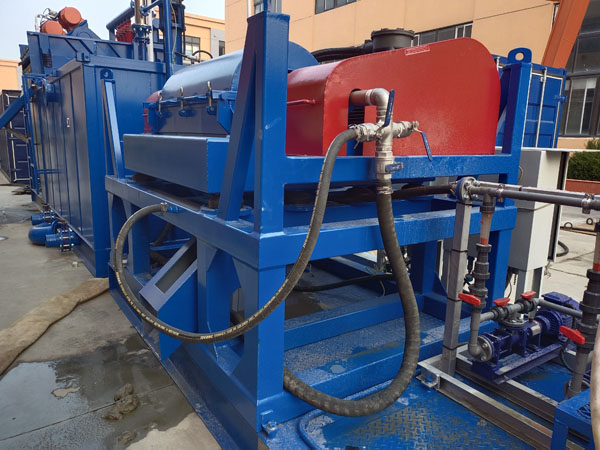- Home
- Products
-
-
Solids Control Equipment
- Linear Motion Shale Shaker
- Decanter Centrifuge
- Mud Cleaner
- Vacuum Degasser
- Centrifugal Pump
- Shear Pump
- Submersible Slurry Pump
- Mud Agitator
- Mud Gun
- Jet Mud Mixer
- Desilter
- Water Tank
- LS606 Shale Shaker
- Mud Tank
- LS1850 Shale Shaker
- Diesel Tank
- Dome-shaped mud cleaner
- Vertical cyclone desilter
- KQG30 Automatic Tank Cleaning
- MD210 Drilling Mud Cleaner
-
Solids Control System
- Solids Control System
- Mobile Solids Control System
- Arctic Solids Control System
- Drilling Mud Cooling System
- Liquid Mud Plant (LMP )
-
TBM
- Tunnel Boring Mud System
-
HDD
- HDD Mud Recovery System
-
-
- News
- Services
- Marketing
- About Us
- Contact Us
- Videos
Home > KOSUN News >
Characteristics of mud treatment in geothermal wells
Mar 27, 2021
The most prominent feature of geothermal well mud is its resistance to high temperature. High temperature will cause mud clay to disperse, thicken, and even solidify due to high temperature, which will damage the performance of the mud, Block the closed production layer and so on. Therefore, geothermal well mud treatment is a key problem in geothermal drilling. The mud treatment process of geothermal wells must be equipped with corresponding professional solids control equipment.

Characteristics of mud treatment in geothermal wells:
1) Blowout control: high-density mud is not suitable.
2) Mud treatment agent: Due to the high temperature of the geothermal well, the mud treatment agent should be guaranteed to be above 150°C to maintain stable mud performance.
3) Heavy metal preparations: it is strictly prohibited to use to prevent environmental pollution.
4) Fine solid phase particles: ensure that the content of solid phase particles is the lowest value.
5) Mud treatment equipment: must be equipped with solid phase control equipment
Requirements for the mud use system of geothermal wells:
1) Conventional mud is used for drilling into the surface overburden.
2) Use low-solid mud from the bottom of the surface to above the thermal reservoir.
3) Use high-quality mud for drilling through hot water-type thermal reservoirs, use low-end bentonite mud for well temperatures below 200°C; use sepiolite mud for well temperatures greater than 200°C.
According to the above-mentioned characteristics and use requirements of geothermal well mud, the most important principle of geothermal well mud treatment is to meet the temperature resistance requirements of the mud.


